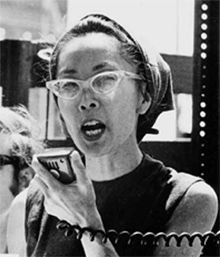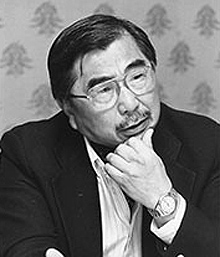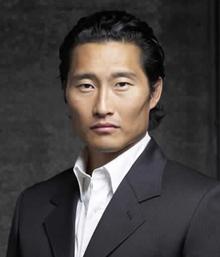Daniel Dae Kim on Asian-American civil rights heroes
CBS News asked noted figures in the arts, business and politics about their experience in today's civil rights movement, or about figures who inspired them in their activism.
Daniel Dae Kim, actor ("Hawaii Five-0," "Lost")
Please share how a civil rights figure influenced you personally.
There are so many people worth mentioning when we talk about the American civil rights movement that are rightfully considered heroes in American history. But there are a few Asian-Americans that made their mark in the civil rights movement that I consider heroes as well.
The first is a woman by the name of Yuri Kochiyama.
Yuri was an American citizen of Japanese descent. She was born in California and she was the model citizen. She was a schoolteacher until 1942, when Franklin Delano Roosevelt signed Executive Order 9066, which basically imprisoned American citizens because of their ethnicity. This order stipulated that if you were of Japanese ethnicity, you could be rightfully stripped of your belongings, told to sell your house, told to leave your businesses, and move hundreds (and sometimes thousands) of miles away into what were essentially prisons -- internment camps.
There were over 100,000 American citizens that were moved into these camps for several years. Yuri Kochiyama's family was one of them. And within weeks of her arrival to the camp, her father passed away from lack of treatment following ulcer surgery that he'd had several weeks before. So it had a great effect on her, and as a result she became an activist.
She went on to protest everything from discriminatory hiring practices, to helping secure reparations for the interned of World War II. She joined Malcolm X's organization of Afro-American Unity.
She is probably most well-known for the iconic photo of Malcolm X after his assassination, lying on the ground being held by a woman, and the woman in that photo is Yuri Kochiyama.
She's someone that was an activist her entire life until her passing -- very recently she passed at the age of 93. I consider her a hero of the civil rights movement.
The other hero of the American civil rights movement that I think is worth mentioning is a man by the name of Gordon Hirabayashi. Gordon was another American of Japanese descent, born in Seattle, and he has this distinction of being one of three people to openly defy the U.S. government's order to intern people based on their ethnic origin.
He refused to enter the internment camps, the same ones that Yuri Kochiyama and her family were forced to enter. By doing so he was arrested, along with two other men (Minoru Yasui and Fred Korematsu), and he became a conscientious objector to World War II.
Instead of doing the "right" thing and going to the internment camp with the rest of his family, he fought. He fought for his sense of justice; he fought for what he felt was right; he fought for what he thought were the rights of every American citizen. And so for that reason, I consider him to be a hero.
He ended up serving his time in jail, went on to become a very prominent professor, and his conviction was eventually overturned. It was a watershed moment, I think, in race relations in the U.S., when it was recognized that it was unconstitutional to be able to imprison people based on their ethnic origins.
He died at the age of 93, and he was posthumously given the Presidential Medal of Freedom for his actions.
Can America really achieve a post-racial society, and how?
That's a really good question. And I'm glad it doesn't pre-suppose that we already DO live in a post-racial society, because there are those Americans out there who believe that we do.
And to those people, I will only say, "Walk a mile in a minority's shoes, and you will see that we do not live in a post-racial society."
In fact, I just tweeted about a woman who decided to go on a racial tirade on a train in Australia, and what she did in that video reminded me, sadly, of my childhood. And as much as I've tried to de-sensitize myself to incidents of ignorance like that, I admit that each time it breaks my heart to know that those kind of people are still out there and that kind of ignorance still exists.
So, we're not in a post-racial society. But we're heading in the right direction.
Unfortunately, America doesn't have the best track record when it comes to treatment of minorities, all the way back from the days of the European settlers committing pretty much genocide against Native Americans, to slavery of course, and then even in the 1900s prejudice against Italian Americans and Irish Americans. There always seems to be some hatred of an outside ethnic group.
The good news is we're working in the right direction. People like Martin Luther King and the civil rights movement have made significant marks in our history as well, and they are responsible for the progress that we're making today - progress that we can see even on our television screen, with people like me coming into your homes every week. The diversity that we have now is probably the most we have had in the history of our country, and what is considered America today is probably more inclusive -- no, not "probably," I would definitely say it's more inclusive -- than at any time in our history. So we are moving in the right direction.
What it will take is more representation in the upper echelons of the business community; more representation in the media; and I think just an understanding that we -- despite differences in appearance and sexual preference and gender -- are all, we can all be proud Americans. We are all proud Americans. And that's how we get to a post-racial society.
For more info:
- danieldaekim.com
- Follow Daniel Dae Kim on Twitter (@danieldaekim), Facebook and YouTube


